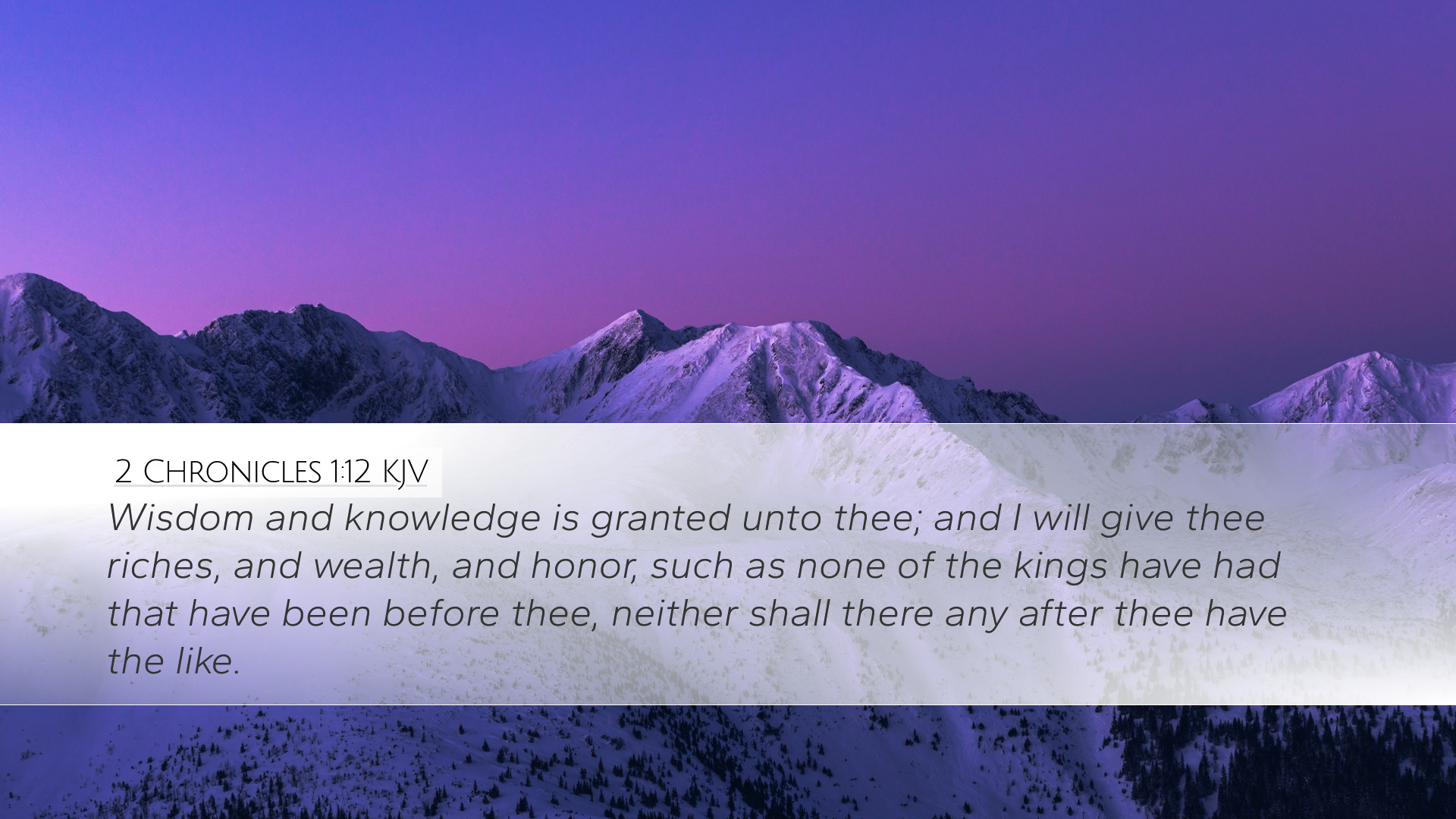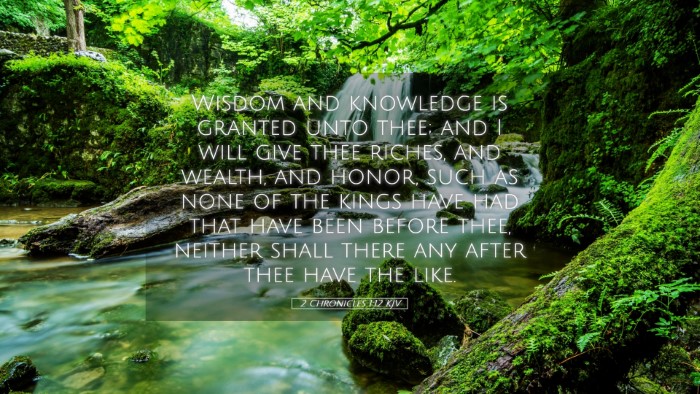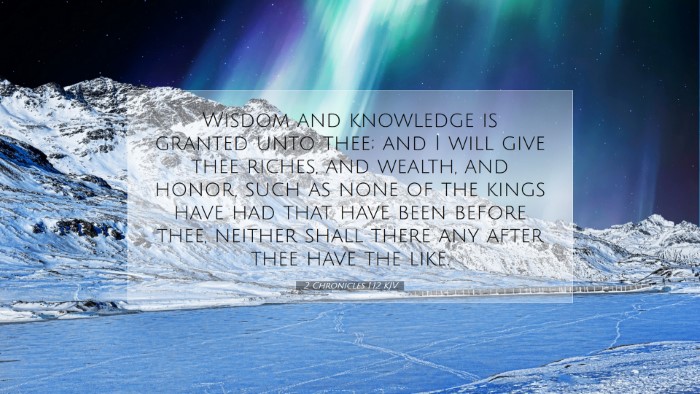Commentary on 2 Chronicles 1:12
Verse: 2 Chronicles 1:12 - "Wisdom and knowledge is granted unto thee; and I will give thee riches, and wealth, and honour, such as none of the kings have had that have been before thee, neither shall there any after thee have the like."
Introduction
This verse encapsulates a divine promise bestowed upon Solomon following his request for wisdom to govern God's people effectively. It serves as a pivotal moment in Solomon's reign, revealing the profound relationship between wisdom, knowledge, and God’s blessings. The following commentary explores various aspects of this verse, providing insights from public domain commentaries.
The Nature of Wisdom and Knowledge
Matthew Henry elaborates on the essence of wisdom and knowledge as essential qualities in a leader. He emphasizes that true wisdom is rooted in the fear of the Lord, aligning with Proverbs 1:7. God granted Solomon not only the practical wisdom necessary for ruling but also a divine insight that surpassed ordinary understanding.
Adam Clarke also reinforces this view, noting that the wisdom given to Solomon was not merely intellectual but was a spiritual endowment which enabled him to discern right from wrong, navigate complex situations, and address the needs of the people with compassion and integrity.
The Significance of God's Promise
The promise of additional blessings — riches, wealth, and honor — alongside wisdom illustrates a vital theological principle: God rewards those who prioritize His purposes. Albert Barnes asserts that Solomon's choice distinguished him from other leaders who sought power or material gain first. This distinction set the stage for God's approval and bountiful blessings.
Comparison with Other Kings
This verse draws a unique comparison with past and future kings. Matthew Henry points out that God specifies the incomparability of these blessings, highlighting that Solomon's reign would be marked by an unprecedented combination of wealth and wisdom. Such a statement serves not only to elevate Solomon but also to underline God's sovereignty in bestowing favor as He sees fit.
Adam Clarke contrasts Solomon with the kings of Israel and Judah, noting that wealth in the hands of the righteous can further God's work and enhance His glory, while in the hands of the ungodly, it often leads to moral decay.
Theological Reflections
The implications of this verse extend beyond historical context into theological applications. It poses questions about how contemporary leaders and believers understand and pursue wisdom. Albert Barnes notes that meaningful pursuit of wisdom aligns with acknowledging God's sovereignty and seeking His guidance. This observation invites pastors and theological scholars to consider how they emphasize divine wisdom in their teaching.
Matthew Henry reminds readers that the fear of the Lord, essential for attaining wisdom, is often overlooked in today's culture, which values knowledge and skill over spiritual understanding. This presents a pastoral challenge to cultivate a community that appreciates divine wisdom above all else.
Practical Applications
- The Pursuit of Wisdom: Believers are encouraged to seek wisdom through prayer and scripture, understanding it as a gift from God rather than a solely intellectual endeavor.
- God's Favor: Reflecting on Solomon’s choice encourages contemporary believers to prioritize spiritual matters over material gain, trusting that God will provide all that is necessary.
- Righteous Leadership: For pastors and leaders, this verse serves as a reminder that effective governance, whether in church or community, requires divine wisdom and humility to serve faithfully.
Conclusion
2 Chronicles 1:12 highlights a profound moment in Solomon's life, offering a template for understanding the relationship between wisdom, knowledge, and God's blessings. The commitments made by Solomon emphasize the value of prioritizing spiritual insights over material ambitions.
Insights drawn from commentators like Matthew Henry, Albert Barnes, and Adam Clarke provide rich theological reflections that resonate with pastors, students, and scholars alike, encouraging them to foster a holistic view of leadership grounded in divine wisdom.


